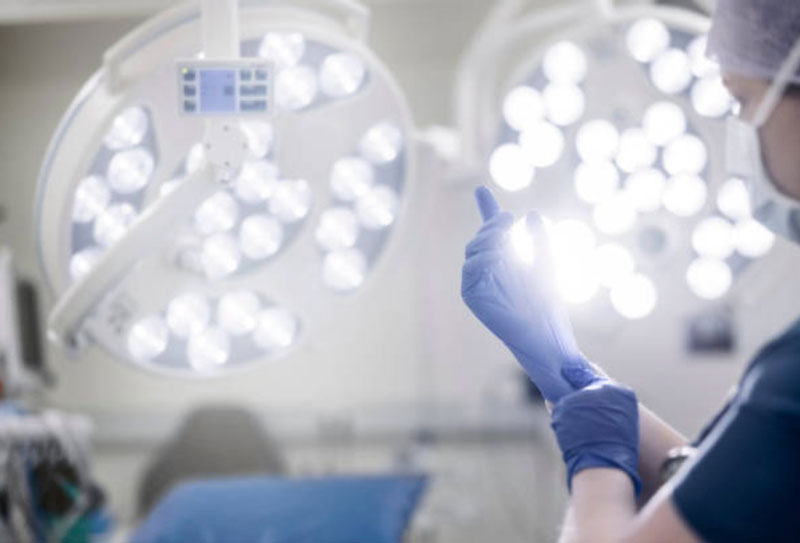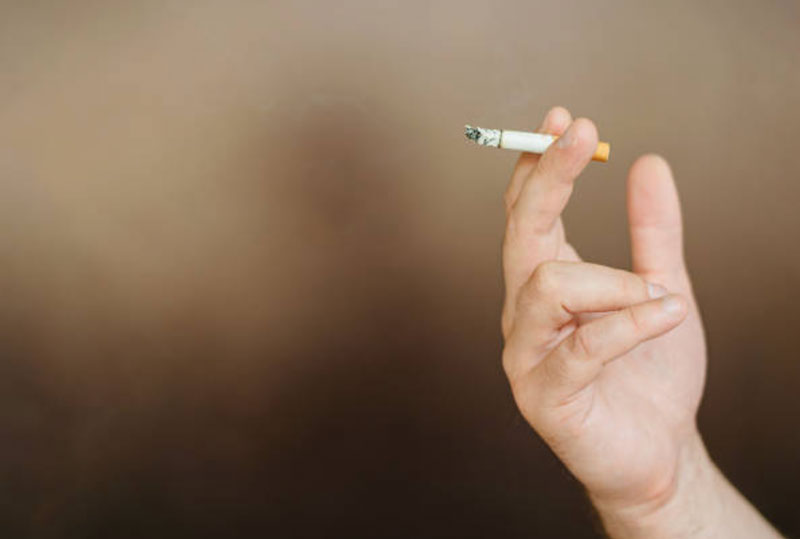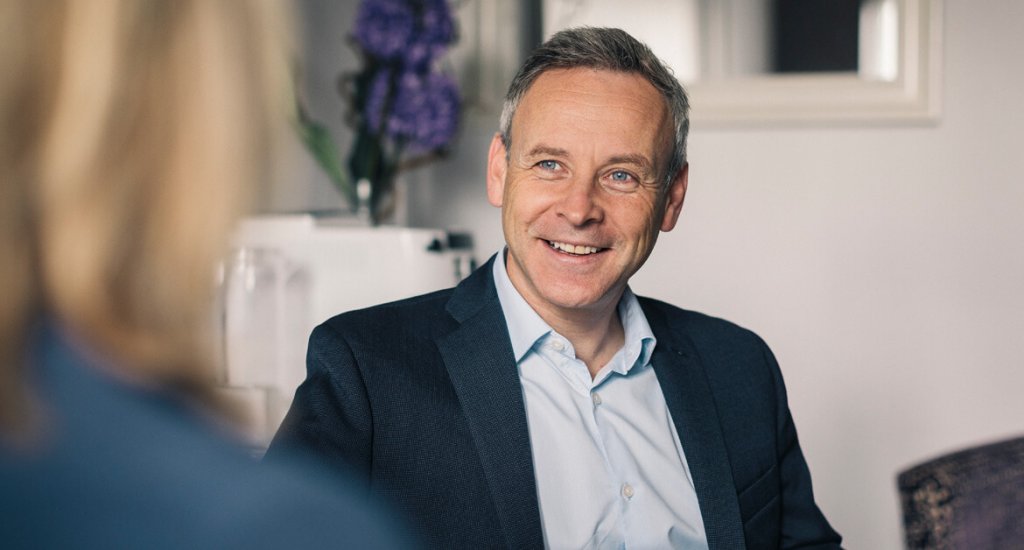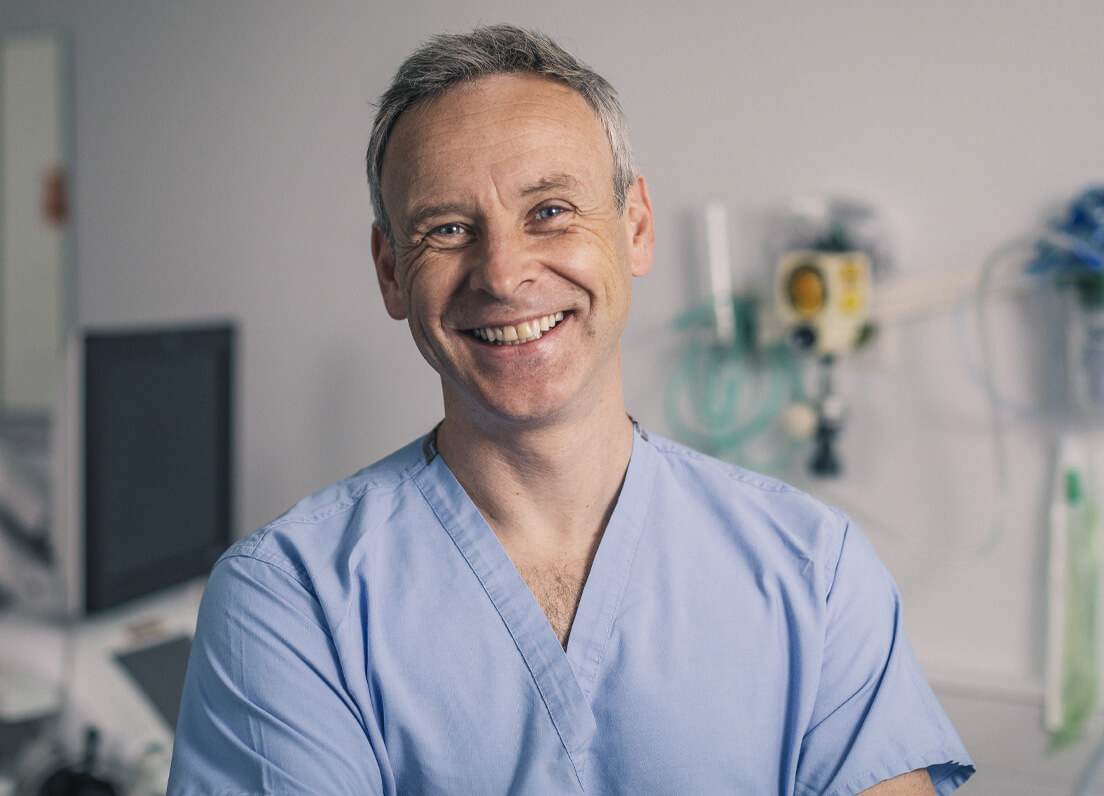Smoking and Its Potential Effects on Breast Surgery
It’s no secret that smoking is a threat to your health. You’re likely well aware of the risks associated with tobacco use, such as heart disease, stroke, and numerous forms of cancer. Yet, you might not understand the full range of the potential health hazards. Smoking can damage nearly every part of the body, from your skin to your bones, and it can have a profound impact on your body’s ability to heal. In addition to the long-term risks, smoking also poses immediate threats to your health. The harmful chemicals inhaled while smoking can lead to an increased risk of respiratory infections, decreased immune function, and poor wound healing. Furthermore, nicotine, the addictive substance in tobacco, can constrict blood vessels, reducing blood flow and oxygen to tissues, which is crucial for healing.
You might be wondering why this matters if you’re considering breast surgery. After all, breast surgery isn’t typically associated with the lungs or heart. However, smoking can have significant implications for all types of surgery, including breast procedures.
In this blog, Consultant Plastic Surgeon Anthony MacQuillan will give you all the details about the implications of smoking for all types of cosmetic breast surgery.
More about Breast Surgery Procedures
Breast surgery is a broad term that includes several different procedures, each with its unique considerations. You might be considering breast surgery for cosmetic reasons, such as breast augmentation or reduction. Alternatively, you might require breast surgery for medical reasons, such as breast cancer treatment or reconstruction following a mastectomy.
In any case, these procedures involve making incisions in the skin, manipulating tissues, and sometimes inserting implants. Just like any surgical procedure, breast surgeries carry inherent risks, such as infection, bleeding, and complications from anaesthesia. However, if you’re a smoker, these risks can be significantly amplified.

The Connection between Smoking and Breast Surgery
Having established the general health risks of smoking and the nature of breast surgery procedures, let’s get into the specific connection between smoking and breast surgery. You might not have considered it before, but there’s a strong link between the two, and it’s vital to understand if you’re a smoker considering this type of surgery.
The reduced blood flow caused by smoking can lead to complications during surgery. Poor circulation can mean less oxygen and nutrients are delivered to the surgical site, which can lead to slower healing, increased risk of infection, and even tissue death (necrosis).
The harmful substances in cigarette smoke can interfere with the body’s immune response, making it harder to fight off potential infections. This is particularly concerning given that any surgical procedure, including breast surgery, inherently carries a risk of infection.
How Smoking Affects the Body’s Healing Process
Smoking’s effects on the body’s healing process are diverse and can impact your recovery from breast surgery. For instance, nicotine’s vasoconstrictor effect can reduce the blood supply to the surgical site, impairing the body’s ability to deliver vital oxygen and nutrients necessary for healing.
Additionally, carbon monoxide, another component of cigarette smoke, can decrease the oxygen-carrying capacity of your blood. This can lead to further oxygen deprivation at the surgical site, slowing the healing process and potentially leading to complications such as wound dehiscence (separation of the wound edges) or necrosis.
Moreover, smoking can disrupt the body’s inflammatory response, which is a critical part of the healing process. This can result in prolonged inflammation, which can further delay healing and increase the risk of complications.
Potential Risks and Complications of Smoking before Breast Surgery
If you’re a smoker preparing to undergo breast surgery, it’s essential to understand the potential risks and complications. The effects of smoking can increase the likelihood of complications both during and after the procedure.
During surgery, smokers may face an increased risk of anaesthesia-related complications due to impaired lung function. The wound healing complications mentioned earlier can lead to unsatisfactory aesthetic results, such as visible scarring or asymmetry.
In more severe cases, smokers undergoing breast surgery might experience necrosis, particularly if the surgery involves tissue flaps or breast implants. Necrosis occurs when the tissue doesn’t receive enough oxygen and begins to die, which can lead to significant complications and may require additional surgery.
The Impact of Smoking on Breast Surgery Recovery
Not only can smoking increase your risk of complications during breast surgery, but it can also impact your recovery afterwards. Slow wound healing can prolong your recovery period, meaning more time off work or away from your usual activities.
Chronic coughing associated with smoking can cause discomfort and potentially disrupt the healing of your surgical site. Moreover, impaired immune function can increase your risk of postoperative infections, which can further delay your recovery and potentially lead to more serious complications.

Can Quitting Smoking Improve Breast Surgery Outcomes?
Quitting smoking is highly beneficial, particularly when it comes to enhancing the outcomes of breast surgery. This improvement is backed by numerous scientific studies that highlight the positive impact of cessation from smoking, even if it’s just a few weeks before the surgery. Here are some aspects to consider:
- When you stop smoking, your body begins a process of self-repair. This is crucial for anyone undergoing surgery, as a well-functioning body responds better to surgical interventions. One of the immediate benefits is the enhancement of blood flow. Smoking constricts blood vessels, which can impede the flow of essential nutrients and oxygen throughout the body. Improved blood flow ensures that the surgical area receives adequate oxygen and nutrients, which are vital for healing
- Quitting smoking boosts your immune system. A robust immune system is critical in the post-operative phase as it plays a key role in warding off infections. Surgical sites are vulnerable to infections, and a strengthened immune system reduces this risk significantly
- Another key aspect is wound healing. Smoking has been shown to delay the healing process, primarily due to the reduced blood flow and oxygen supply to the tissues. When you quit smoking, your body’s ability to heal improves, leading to quicker and more efficient wound healing. This is particularly important in breast surgery, where the aesthetic outcome is as important as the surgical success
It’s also important to understand the timing of quitting smoking in relation to your surgery. The earlier you quit, the better your body can recover from the adverse effects of smoking. There’s a direct correlation between the length of time you’ve quit smoking and the likelihood of a successful surgical outcome. The longer your body is free from the effects of smoking, the better it can prepare and recover from the surgery.
The benefits of quitting smoking before breast surgery are many. Improved blood flow, enhanced immune response, better wound healing, and reduced risk of infection all contribute to a higher chance of successful surgery and more satisfactory results. Therefore, for anyone considering breast surgery, quitting smoking should be a top priority for optimal surgical outcomes.
Advice for Smokers Considering Breast Surgery
If you’re a smoker considering breast surgery, the most important advice is to quit smoking as soon as possible. Consult with your healthcare provider about strategies and resources to help you quit. This might include medications, counselling, or nicotine replacement therapies.
It’s also crucial to be honest with your plastic surgeon about your smoking habits. This information is vital for Anthony to accurately assess your risk and plan your surgery and recovery.
The Importance of Discussing Smoking Habits with Your Surgeon
Smoking can significantly impact your breast surgery outcomes. From increasing your risk of complications to delaying your recovery, the effects of smoking on plastic surgery results are profound and well-documented. Therefore, if you’re a smoker considering breast surgery, it’s crucial to take these risks seriously and take steps to quit smoking as soon as possible.
Most importantly, be sure to discuss your smoking habits with Anthony. He can provide you with the information and resources you need to quit smoking and improve your chances of a successful breast surgery outcome. The risks are high, but with the right support and commitment, you can overcome them and achieve your breast surgery goals.
FAQs about Smoking and Breast Surgery
Can second-hand smoke exposure impact breast surgery outcomes?
- Yes, second-hand smoke exposure can indeed impact breast surgery outcomes. While direct smoking is known to be detrimental, passive smoking or inhaling second-hand smoke can also pose risks. It can affect blood flow and oxygenation of tissues, which are crucial for healing. Second-hand smoke contains many of the same harmful chemicals as inhaled smoke, potentially leading to increased complications such as delayed wound healing, higher infection rates, and poorer scar formation. Therefore, it is advised for patients undergoing breast surgery to avoid environments where they might be exposed to second-hand smoke, both before and after the procedure, to ensure a smoother recovery and better surgical outcomes.
Are there any differences in the recovery process for smokers vs non-smokers after breast augmentation?
- The recovery process for smokers versus non-smokers after breast augmentation can be significantly different. Smokers typically face a higher risk of complications such as poor wound healing, infections, and increased scarring. Nicotine causes constriction of blood vessels, which reduces blood flow to the surgical area, impairing the body’s natural healing processes. This can result in prolonged recovery times and may compromise the aesthetic results of the surgery. In contrast, non-smokers generally experience a smoother and quicker recovery, with fewer complications and more predictable surgical outcomes. Therefore, patients who smoke are often advised to quit well before undergoing breast augmentation to improve their chances of a successful recovery.
What are the effects of nicotine on skin elasticity and scarring in breast plastic surgery?
- Nicotine has several adverse effects on skin elasticity and scarring, especially in the context of breast plastic surgery. Nicotine causes vasoconstriction, which limits blood flow to the skin. This reduced blood flow impairs the delivery of oxygen and essential nutrients, which are vital for skin health and elasticity. Consequently, less elastic skin is more prone to damage during surgery and may not heal as well. Additionally, poor circulation can lead to increased complications in wound healing, resulting in more prominent or keloid scarring.
Is the risk of anaesthesia complications higher for smokers undergoing breast plastic surgery?
- Smokers undergoing breast plastic surgery face a higher risk of anaesthesia-related complications. Smoking affects lung function and cardiovascular health, making it more challenging to manage breathing and circulation during and after surgery. Smokers are more prone to issues like bronchospasm, pneumonia, and reduced oxygenation of the blood, which can complicate both the administration of anaesthesia and the recovery process. Nicotine and other chemicals in cigarettes can interact with anaesthetic agents, affecting their efficacy and potentially leading to adverse reactions. Due to these increased risks, surgeons and anaesthesiologists often require patients to quit smoking well in advance of the surgery.
How long should a patient abstain from smoking after breast reduction surgery to ensure optimal healing?
- Patients are strongly advised to abstain from smoking for at least 4-6 weeks after breast reduction surgery to ensure optimal healing. This period is crucial as it allows the body to recover and heal without the negative impacts of smoking, such as reduced blood flow and oxygenation to the surgical site. Smoking during the recovery phase can significantly increase the risk of complications like poor wound healing, infections, and more pronounced scarring. In some cases, Anthony may recommend an even longer period of abstinence from smoking, depending on the patient’s overall health and the specifics of the surgical procedure.
Further Reading about Breast Surgery with Consultant Plastic Surgeon Anthony MacQuillan
- Read more about Breast Uplift Surgery
- Read more about Breast Enlargement Surgery
- Read more about Breast Uplift Enlargement Surgery
- Read more about Nipple Correction Surgery
- Read more about Breast Reduction Surgery
Medical References about Smoking and Breast Surgery
- Effect of Smoking in the Cosmetic Surgery Population – Oxford Academic
- Smoking as a risk factor for breast reduction
- Smoking as a Risk Factor for Surgical Site Complications in Implant-Based Breast Surgery
- Wound healing and infection in surgery. The clinical impact of smoking and smoking cessation
- The Association between Smoking and Plastic Surgery Outcomes in 40,465 Patients



